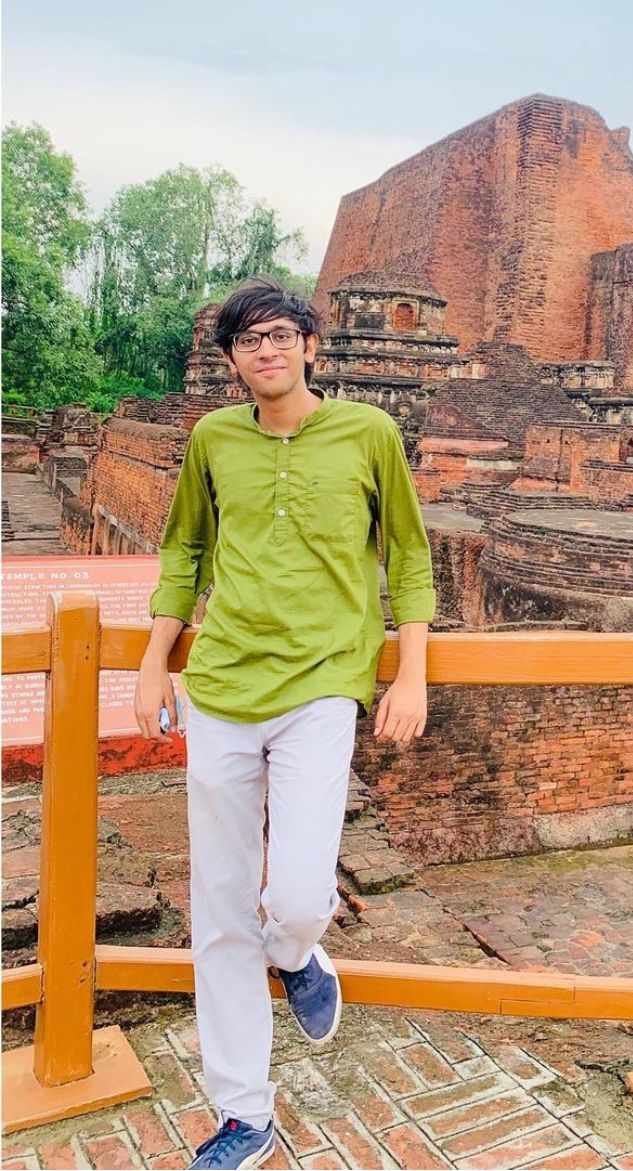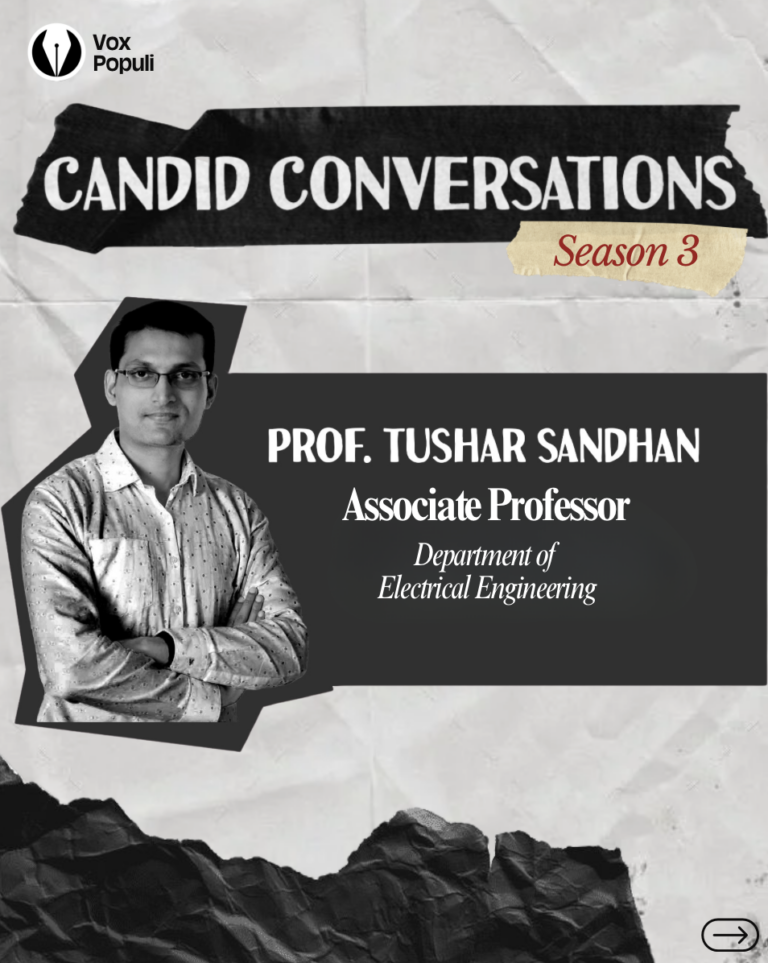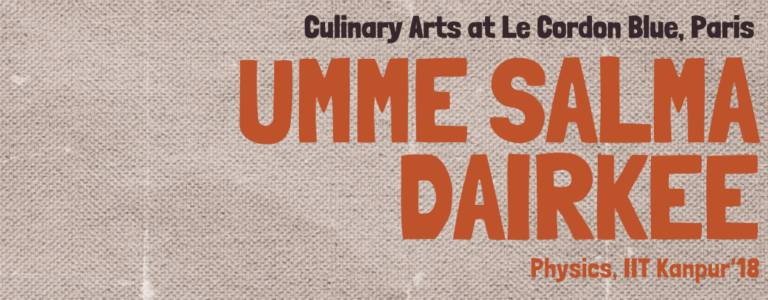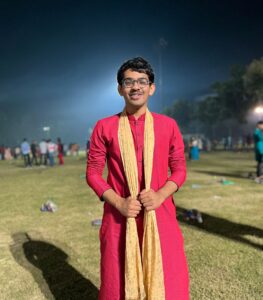Disclaimer: Vox Populi, IIT Kanpur, is the exclusive owner of the information on this website. No part of this content may be duplicated, paraphrased, or interpreted in any other way without written consent from Vox Populi. If you want to reproduce any of the content on this page, please contact our chief editors directly or reach out to us by email at voxpopuli@iitk.ac.in.
In this 33rd edition of As We Leave, Aayush Priyadarshi, a Y19 dual degree student from the department of Mathematics and Scientific Computing, takes us on a philosophical trip, reflecting on the dichotomy of rationality and irrationality, the cyclic nature of life and more.
Disclaimer:- The views presented below are the author’s own and are not in any manner representative of the views of Vox Populi as a body or IIT Kanpur in general. This is an informal account of the author’s experiences at IIT-K.
India lifted the cup, and five years of college came to an end. There was something cinematic about graduating on the day when two superheroes of an entire generation helped end a long drought and passed on the torch to a younger generation. There was closure, and there was a promise of change, a hope for better things to come. It felt like summer rain, a transition between seasons. Life does write the best scripts.
Five years is a long time, no doubt. Strangely, the years I have spent in this place seem no more than a moment, and yet they also feel like an entire lifetime. The perception of the flow of time is a mystery. Maybe the goal of life is to not feel time. If you focus hard enough, time ceases to exist. And this world seems like a stage, in all its glory, a snapshot frozen in time. David Bowie’s magnum opus, The Rise and Fall of Ziggy Stardust opens with a prophecy: “We’ve got five years, stuck on my eyes. Five years, what a surprise. Five years, my brain hurts a lot. Five years, that’s all we’ve got.” Bowie laments an impending apocalyptic disaster and introduces a world about to end in five years. Retrospectively, I find Bowie’s cataclysmic setting an interesting way to think of college life. In a sense, the end of college seems like the end of a world. The acceptance of an impending doom acts like a chain-breaker for the self. It is reminiscent of the teachings of the Bhagavad Gita, where Krishna tells Arjun that the key to moksha is embracing the mortality of the body. Sometimes, you have to get close to death to get closer to life.
I remember coming across Akira Kurosawa’s Rashomon in a film course I took. The film recounts an incident through the viewpoint of different characters, each with their own twisted, alternative versions of the truth. It was one of the first times I encountered the subjectivity of reality in such a raw and spellbinding manner. It’s funny how I graduated with two degrees in Maths, but the courses where I have learnt the most have been the humanities ones. I feel like the courses here have exposed my brain to two polar extremes of thinking: a contrast (and an intersection) between objective reasoning and subjective experiences. This dichotomy is a commonality to many Eastern philosophies; the Chinese called it the yin and yang, while Vedic schools used the term Dvaita.
I prefer to think of it in terms of numbers. The space of real numbers can be divided into two subspaces: the rationals and the irrationals. Similarly, the self can also be seen as being composed of a rational self and an irrational self. Our mind, the world, everything within and everything without, reality itself can be perceived as a spectrum with these two extremes. Life then becomes a balancing act between sanity and insanity. It is the ambition of Caesar and the asceticism of Buddha.
I feel that a major problem with the modern world is that we tend to disregard the irrational, which also reflects in the negative connotations of the word. Most of us have been trained in the “scientific method” from a young age, conditioning our brains into a rational and logical way of thinking. The fact that every single thing around us, including ourselves, can be assigned a quantitative monetary value contributes to this rational belief system. A life-maximizing capital sometimes seems to be the only correct choice. But I find this outlook very discrete, very jarring. An important realization I’ve had over my college life is that not only is it okay, but it is necessary to be crazy at times. In fact, the space of irrational numbers is, in a sense, much larger than the space of rational numbers. So shine on, you crazy diamond.

In my mind, this campus has always been a bubble of sorts. A utopia, a fantasy land far removed from the late-stage capitalist world out there. But what is it that differentiates this environment from the outer world? One can think of it in terms of the set and the setting.
The set, the people you are surrounded by here, is one of the most unique things about this campus. It is very difficult to recreate such a close-knit community of like-minded individuals. The relationship among peers here is a far cry from the ultra-Darwinian, dog-eat-dog traits of capitalism. I believe that one of the essential elements of human beings is our ability to empathize, the ability to relate to each other on a fundamental level, and the ability to recognize each other’s humanity. Pink Floyd’s Roger Waters pens it beautifully in the song Echoes, “Strangers passing in the street, by chance two separate glances meet. And I am you, and what I see is me.” The set of people I’ve come across at IITK, and the feeling of a shared identity on campus have reinstated my belief in this empathy, in this humanity.
The setting, the beautiful campus itself, provides you with a sense of comfort and peace, far away from the bustling chaos of concrete cities. This peace nurtures an environment for introspection and reflection. Some of my happiest memories of campus have been just sitting in this embrace of nature, watching the world go by. Nature provides us with some of the best metaphors. The tree of life, symbolizing a shared human consciousness. The river of time, constantly flowing and changing. The seasonal cycles of change, like death and rebirth.


This blend of set and setting provides us with a liberating opportunity to feel truly free, not restricted by the chains of a rigid system. It is an environment which promotes the discovery of the self. It is a ground control for all the Major Toms out there. It is an opportunity to get in touch with your inner child, to distinguish between the alien concepts and the personal concepts, to look within and without, and to take a step closer to discovering your meaning of life.
For me, this opportunity has manifested itself in the form of a re-discovery of my love for writing. I remember spending hours reading stories and writing poems as a child, lost in an imaginary world of my own. With time, however, the joy of writing was somewhat stifled by an over-competitive spirit. But throughout the past year or so, I have realized the importance of having a creative habit. Yes, writing was not going to land me a job. But writing could teach me about life. When you sit down to write, you don’t have an end goal or a conscious structure in mind. What you have are ideas. The end product is a result of the organic growth of these ideas with time, like flowers in a garden. Writing teaches you to navigate through life using ideas as your maps. Observing life through the lenses of a writer can help one make more sense of their own stories.
I did not plan on writing an As We Leave initially. But being back here for convocation, I felt that this place is too beautiful not to write about. So I stayed back for a couple more days, to reflect on the learnings I have had over the last five years. That is probably why this article turned out to be more philosophical than nostalgic. One of the pages of my degree has a misprint; it reads Philosophy Minor instead of English Literature. The randomness in life is extremely beautiful sometimes.
I have always felt that the world would be a better place if it were like the campus. So, I hope that whenever I look back, it makes me strive to be a better human being. And now, I am stepping out of this bubble, ready to face the real world, apprehensive of its dangers, yet with a childlike wonder for the boundless possibilities which lie ahead. I think of the first day I came here, a child leaving his home for the first time. I think of the Ouroboros, a snake devouring its own tail. I think of the cyclic nature of life. I feel like I am shedding skins, I feel like I am dying, I feel like I am being reborn. In the words of Bob Dylan,
“Good and bad I defined these terms
Quite clear, no doubt, somehow.
Ah, but I was so much older then,
I am younger than that now.”

Written by: Ayush Priyadarshi
Edited by: Kumar Shubham, Vedanshi Aggarwal
Designed by: Sanyam Shivhare










